Androgynous Style: How Gucci, Alexander McQueen, and Fendi Are Shaping a New Era of High Fashion
Welcome to FashionLingo, the beauty & fashion newsletter publication by Carmen Julia Chu. You can learn more about FashionLingo by reading its About page, and you can email me at cjuliachu.r@gmail.com
As gender lines blur in today’s society, fashion has become a leading arena for exploring androgyny. Luxury powerhouses like Gucci, Alexander McQueen, and Fendi are not merely participating in this movement—they're defining it. Through their avant-garde designs and bold reimaginations of masculinity and femininity, these brands are spearheading a powerful cultural phenomenon that transcends trends and reshapes the very essence of style.
Blending History with Contemporary Icons:
The concept of androgyny, derived from the 14th-century combination of "andr" (man) and "gyne" (woman), has long been a part of fashion history. Gabrielle "Coco" Chanel challenged the rigid norms of her time by introducing menswear-inspired designs for women, laying the groundwork for the gender-fluid fashion we see today. Chanel’s revolutionary approach has continued to inspire modern designers who seek to transcend traditional gender boundaries.
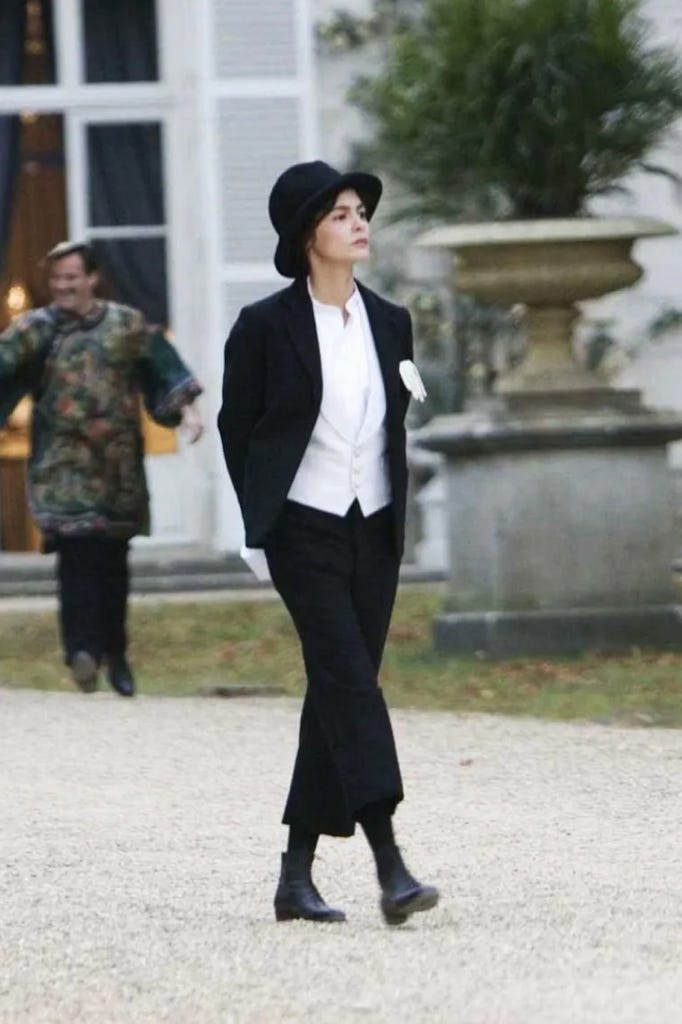
Icons like David Bowie, Prince, and Grace Jones further pushed these boundaries, using fashion as a medium to blur the lines of gender and create bold, unforgettable personas. Today, modern icons like Harry Styles and Nicholas Galitzine carry forward this legacy, embodying the fluidity that blurs traditional gender lines in the public eye.
Gucci and Harry Styles: A Cultural Phenomenon
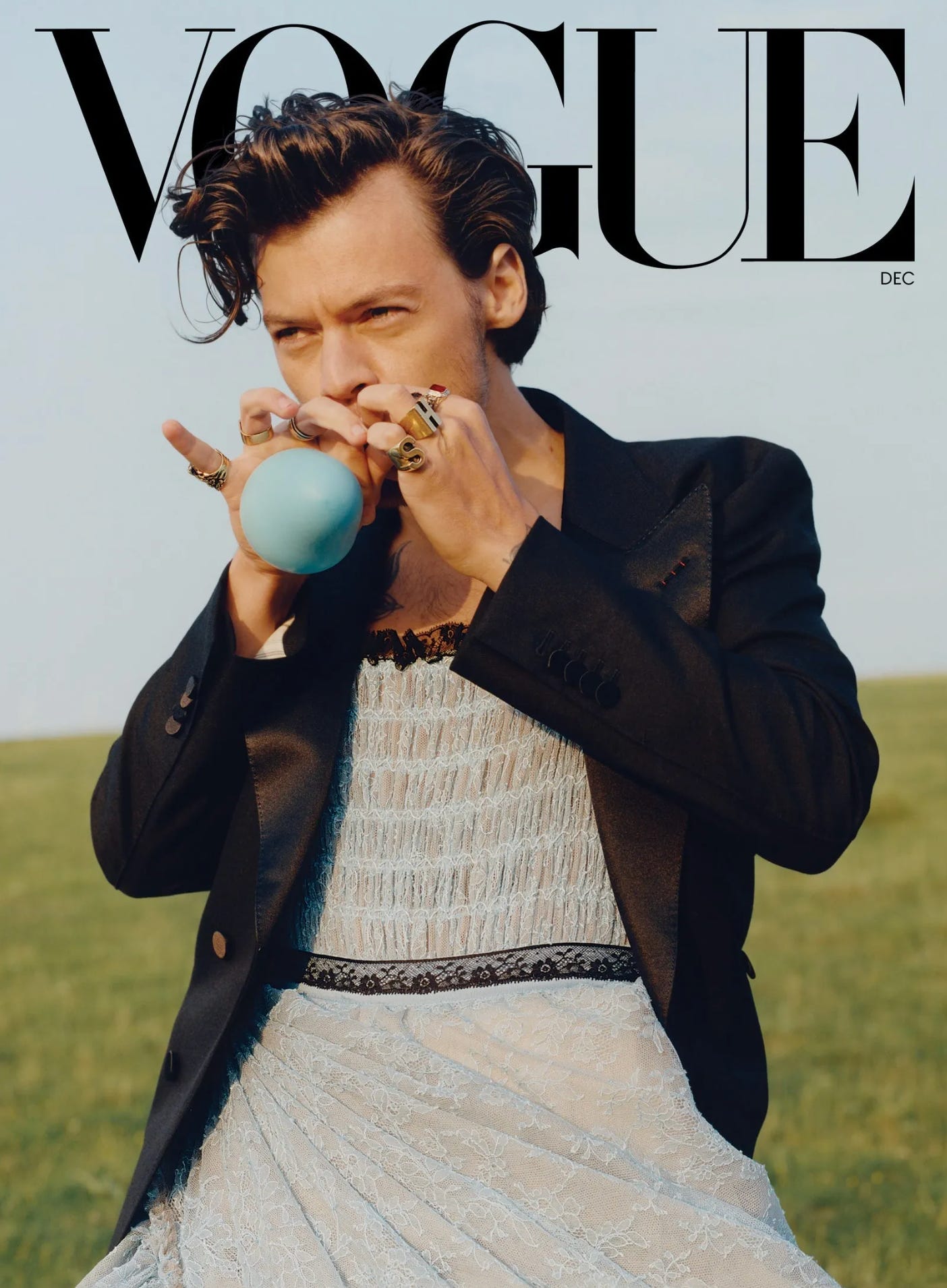
Harry Styles’ transformation from pop sensation to fashion icon is emblematic of the shift towards androgynous style. After the breakup of One Direction, Styles emerged as a solo artist and began embracing unconventional clothing choices that defied traditional gender norms. His appearance at the BRIT Awards in February 2020, wearing a bright yellow three-piece suit from Marc Jacobs’ Spring 2020 womenswear collection, marked a pivotal moment in his sartorial journey. Styles was even seen with a tied lilac bow around his neck, emulating the runway styling.
In an interview with The Guardian, Styles articulated his philosophy on fashion: "What women wear. What men wear. For me, it’s not a question of that. If I see a nice shirt and get told, ‘But it’s for ladies,’ I think: ‘Okaaaay? Doesn’t make me want to wear it less though.’ I think the moment you feel more comfortable with yourself, it all becomes a lot easier."
Styles’ collaboration with Alessandro Michele, particularly the HA HA HA collection, further solidified his influence in the androgynous fashion movement.
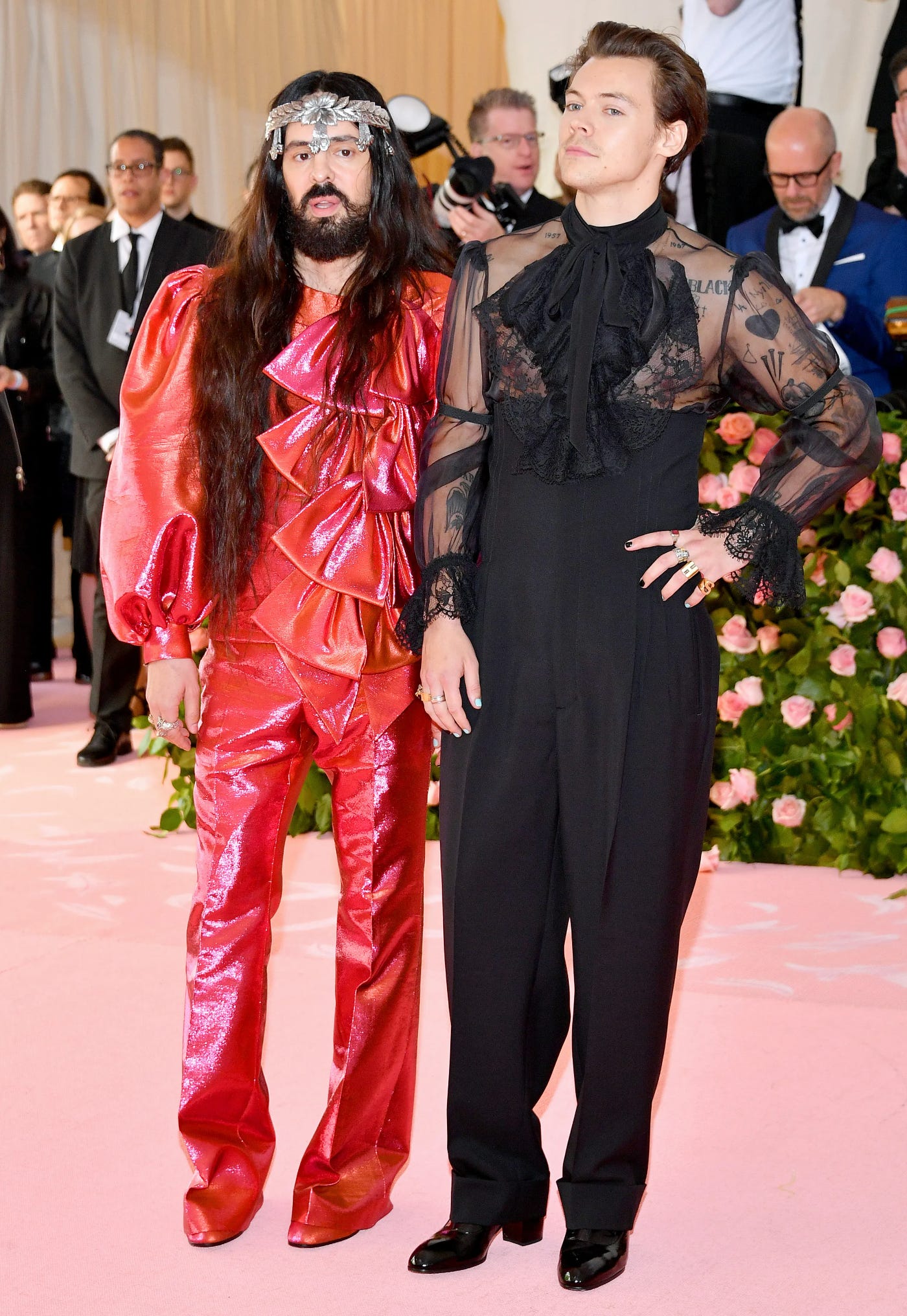
As the first solo male to grace the U.S. Vogue magazine cover in a dress, Styles has not only redefined masculinity in fashion but also become a beacon for younger generations. His sartorial choices have resonated with those who feel a sense of belonging through his unapologetic self-expression.
As Harry Styles steps into a new fashion chapter, his partnership with S.S. Daley marks a significant shift in his sartorial journey. Moving away from the flamboyant designs of Alessandro Michele’s Gucci, Styles now champions the quirky Britishisms of Steven Stokey-Daley, an emerging designer whose work resonates with the singer's evolving aesthetic. Notably, Stokey-Daley was the recipient of the 2022 LVMH Prize for Young Designers, a prestigious accolade that underscores his potential to shape the future of fashion. This transition reflects not only Styles' growing influence in the fashion world but also his commitment to nurturing new talent. With Styles taking a minority stake in the label, S.S. Daley is poised to become a modern British heritage house, much like the Gucci of the past decade.
As Gucci drives its future under new leadership, the question remains: will the brand continue to embrace the androgynous spirit that has come to define its recent history? With Alessandro Michele now at Valentino, the evolution of gender-fluid fashion will undoubtedly take new and exciting forms, leaving the fashion world eagerly anticipating Gucci’s next move.
Alexander McQueen: The Vanguard of Androgyny
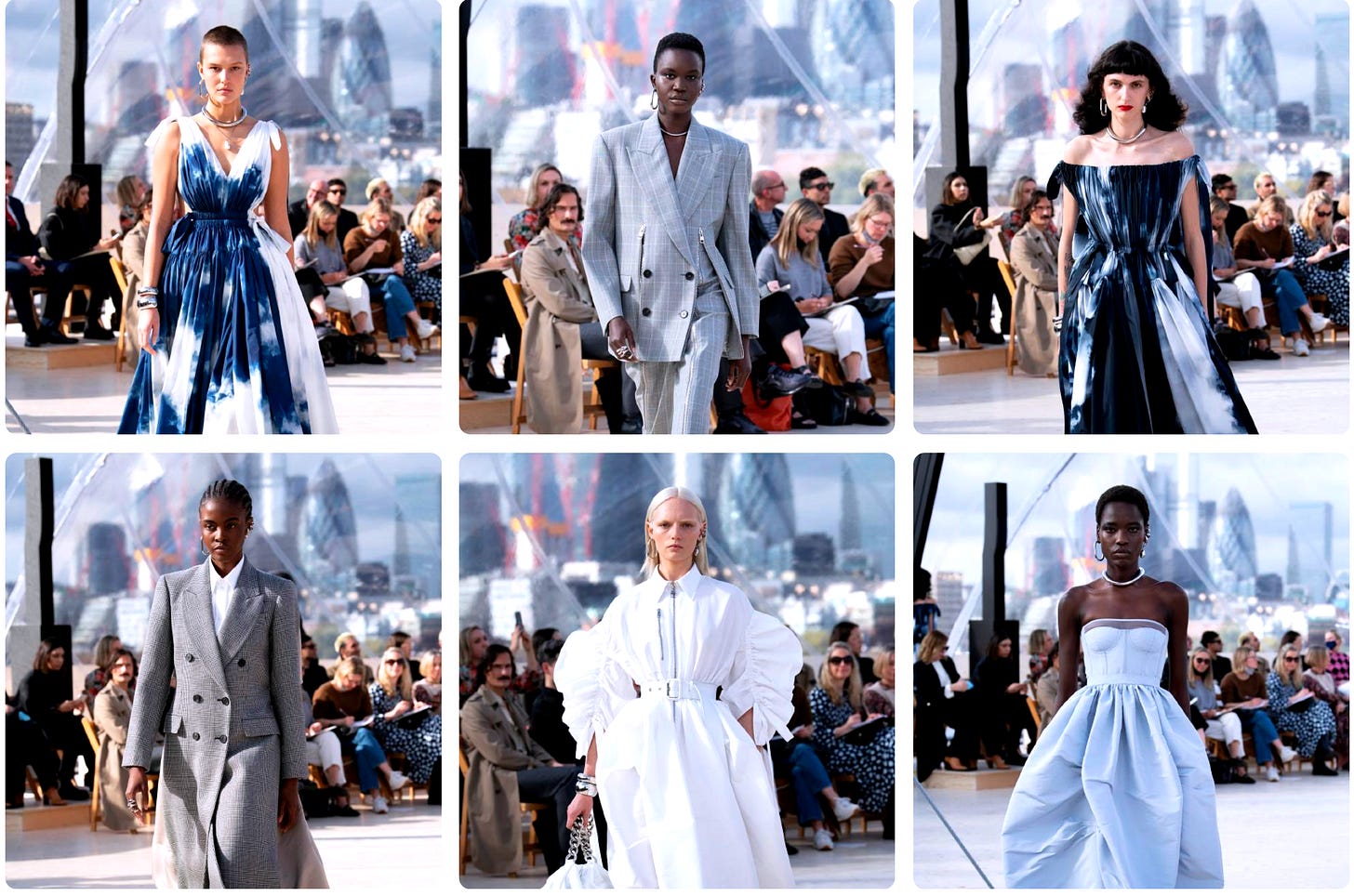
Alexander McQueen, celebrated for its avant-garde approach and fearless innovation, has played a crucial role in shaping the androgynous style within high fashion. While Sarah Burton, the former creative director, is perhaps best known for designing the iconic wedding dress for Princess Katherine, her work at McQueen extended far beyond traditional femininity.
Burton masterfully carried forward the brand’s legacy of challenging conventional gender norms. Her designs often explored the duality between masculinity and femininity, merging sharp tailoring with ethereal fabrics and blending structured silhouettes with softer, flowing elements. This approach blurred the lines between genders, creating pieces that defied simple categorization.
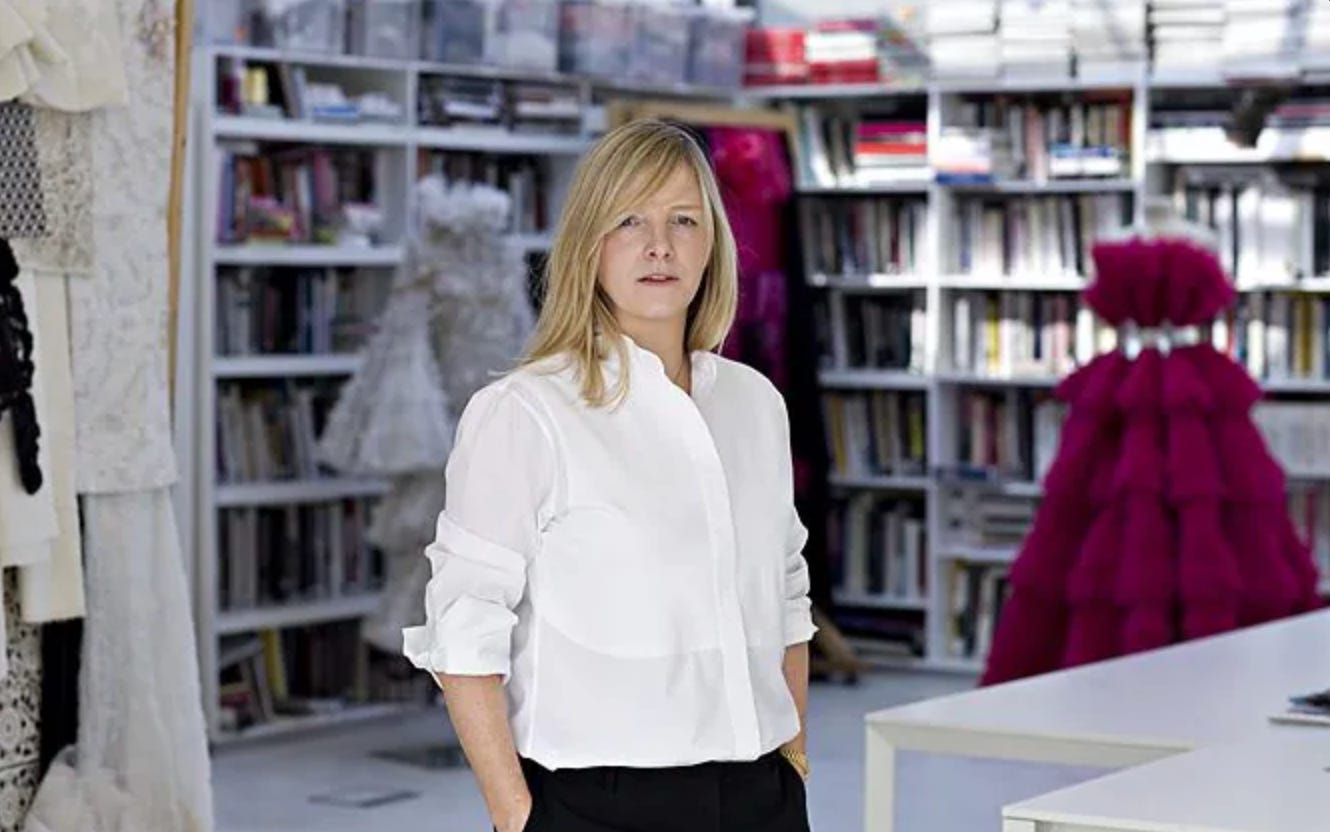
Burton's ability to craft both the elegantly feminine and the strikingly androgynous spoke to her versatility as a designer. Under her direction, McQueen continued to push the boundaries of fashion, crafting collections that embraced and celebrated the fluidity of identity. Now, with Seán McGirr at the helm, the brand is poised to continue its tradition of innovation, with a fresh perspective on the evolution of androgynous fashion.
Fendi’s Foray into Androgyny with Nicholas Galitzine
Fendi, long celebrated for its luxury and craftsmanship, has embraced the androgynous trend with a modern twist. Nicholas Galitzine, a rising star known for his fashion-forward choices, has become a key figure in this narrative. Galitzine, who captivated audiences with his portrayal of a queer character in Red, White & Royal Blue co-starring Taylor Zakhar Perez, and in the series “Mary & George” with Academy Award winner Julianne Moore, continues to challenge traditional norms through his diverse roles. In The Idea of You, he plays a straight character alongside Academy Award winner Anne Hathaway where he falls in love with an older woman, a narrative that defies age-related stereotypes and enriches the ongoing conversation about fluidity and identity in modern society.
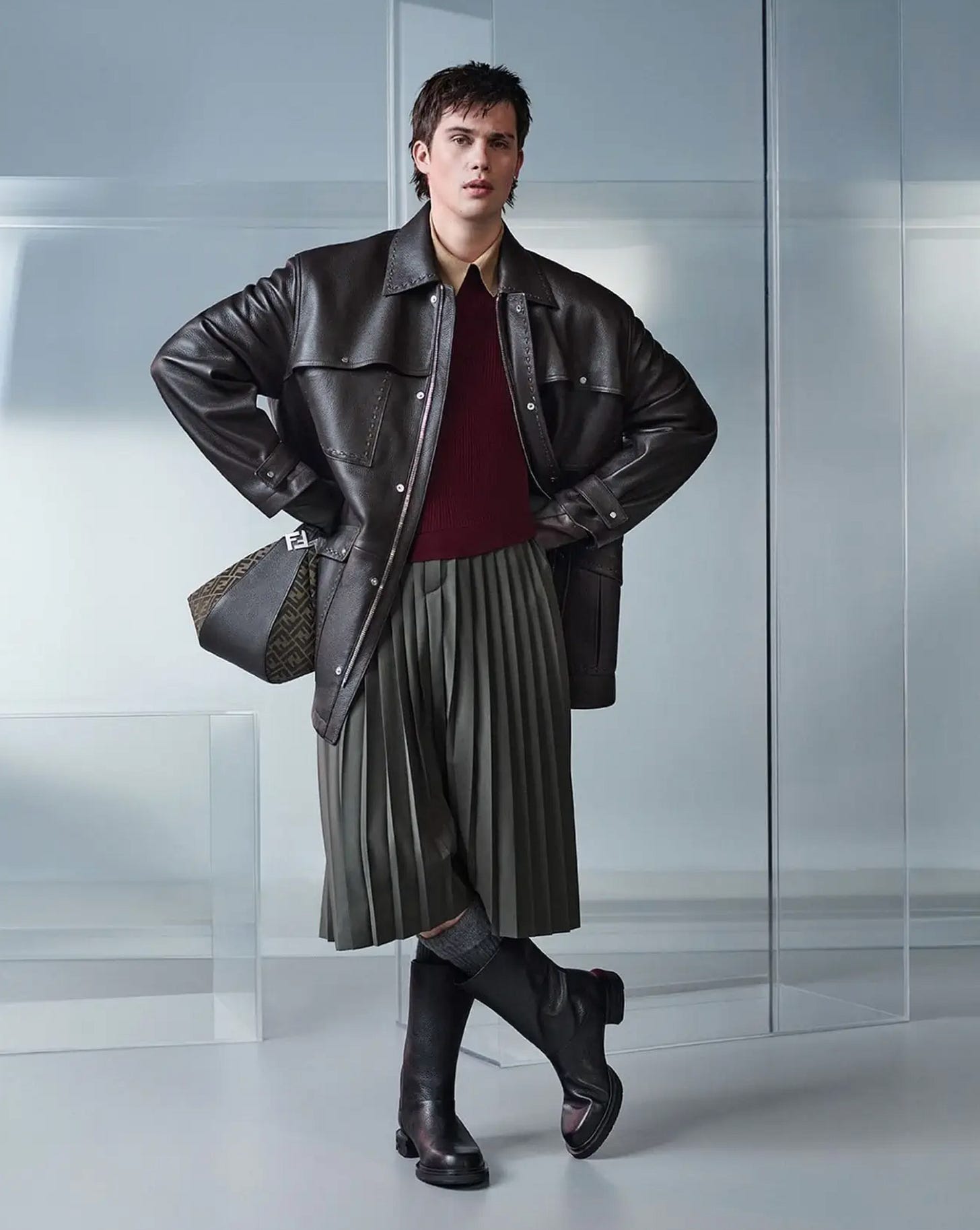
Galitzine has been building his relationship with Fendi since attending the Baguette 25th anniversary show in New York in September 2022, and was named the house’s first-ever global menswear ambassador in 2023. His association with Fendi underscores the brand's commitment to evolving with the times, seamlessly incorporating gender-fluid elements into its iconic designs.
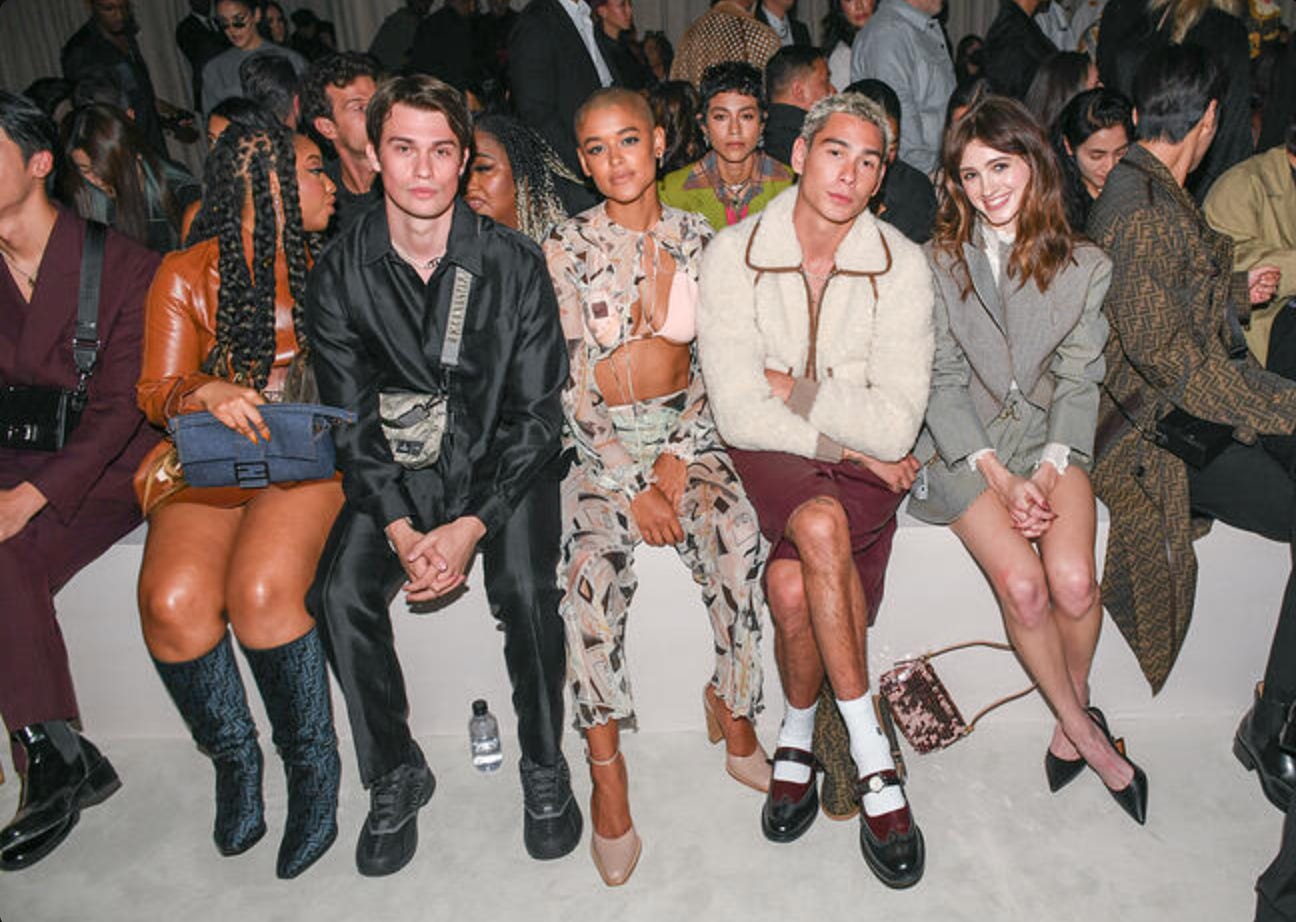
Galitzine's style, which effortlessly blends traditionally masculine and feminine elements, mirrors Fendi's ability to innovate while remaining true to its heritage. This fusion of classic and contemporary influences positions both Galitzine and Fendi as leading voices in the redefinition of modern masculinity. As Fendi continues to explore these themes, it contributes to a broader shift in fashion, where boundaries are increasingly blurred, and individuality reigns supreme."
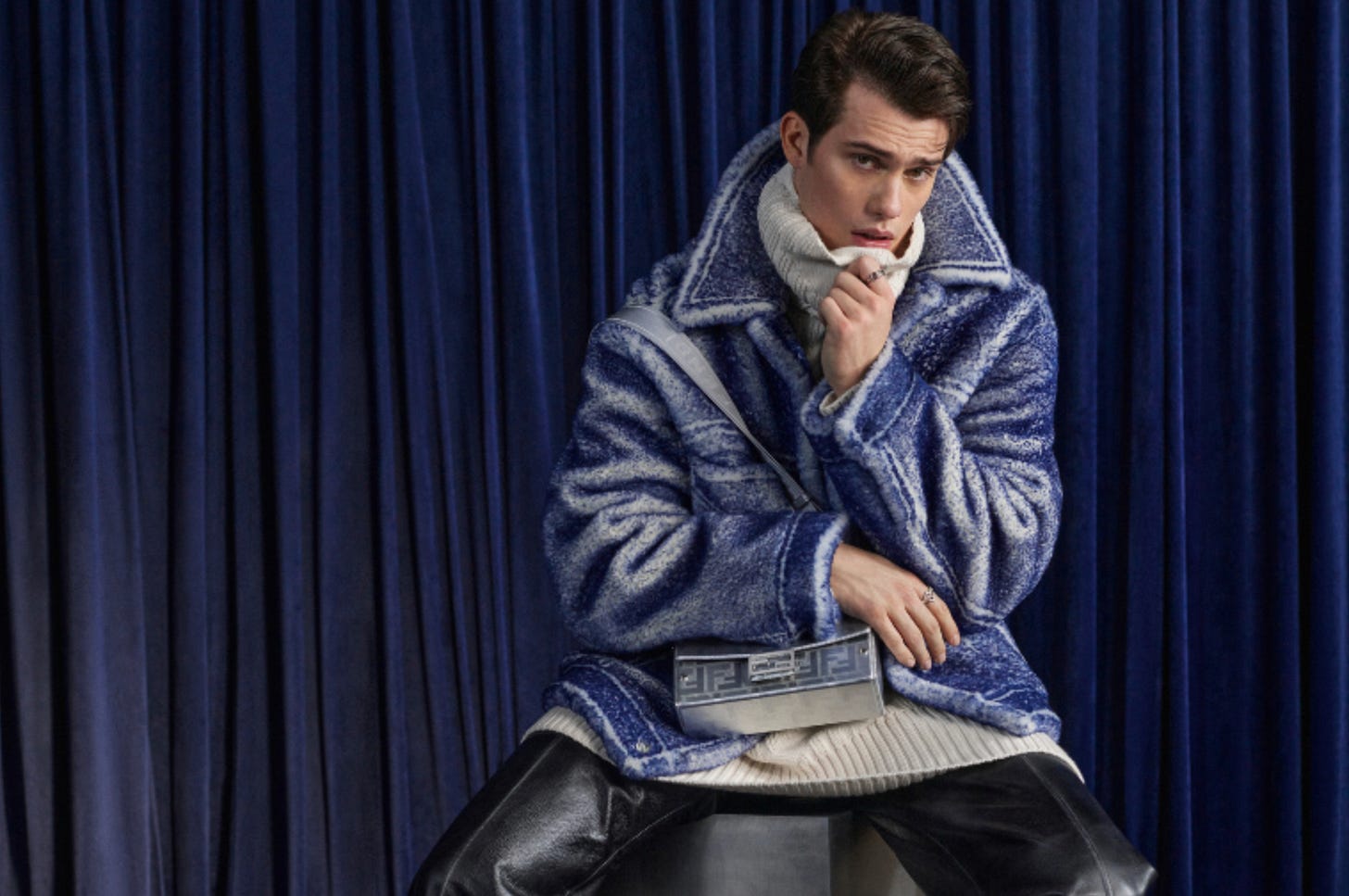
The contributions of Gucci, Alexander McQueen, and Fendi to the androgynous fashion movement are undeniable. Each brand, through its unique lens, has reimagined the possibilities of gender expression in fashion, creating a landscape where traditional boundaries are no longer relevant. As we look to the future, these brands will undoubtedly continue to challenge norms and inspire new generations to embrace their true selves through the art of fashion.


